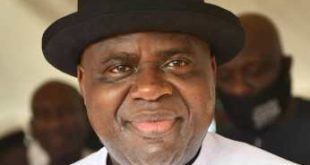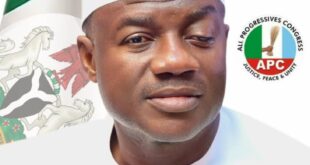By Joel Anekwe
The chairman of Human and Environmental Development Agenda (HEDA), Mr. Olanrewaju Suraju, has that said about 456 top Nigerian public officials, holding strategic positions, are yet to declare their assets in spite of the regulations put in place by the Code of Conduct Bureau (CCB).
Suraju made the revelation on Monday in Port Harcourt during the ‘Experts’ Training and Advocacy on Tracing and Recovery of Illicit Funds and Assets,’ adding that the reason public officials refuse to declare their assets, was “only because they intend to corruptly acquire assets.”
He said one of the aims of the training was to start a process of inviting citizens to take ownership of the fight against corruption and recovery of stolen assets, noting that Nigeria in the past 59 years had lost up to N600 trillion to money laundry perpetrated by its citizens as well as foreigners.
“We cannot continue to tolerate it, and that it is only the security agencies that have the responsibility of fighting corruption,” the HEDA chairman said.
Also in their presentations, Christian Erikson and Lionel Faull said that the United Kingdom (UK) receives not less than 90 billion shady funds from across the world every year, most of them stolen by public officials from the Third world, including but not limited to Nigeria.
In a joint paper, tagged ‘Obtaining Property Information Overseas,’ the foreign experts said 87,000 illicit assets in UK are owned by anonymous companies in tax havens, while the values of secretly owned properties in the UK are between 56 to 100 billion pounds. Forty percent of these properties are in the city of London.
The training organized by HEDA in collaboration with international groups, The Corner House, Kent Law School, all in the UK, MacArthur Foundation and the Open Society Initiative for West Africa (OSIWA).
The programme drew 70 civil society organisations, media, labour and representatives of anti-corruption institutions from across the Niger-Delta.
In his remarks, Nick Hildyard, an anti-corruption investigator said though the UK has one of the most effective anti-corruption laws, in reality, the country does not appear to be fully prepared to stall the wave of corruption, with her financial institutions providing the logistics for corrupt officials from Nigeria.
“The UK is a legally corrupt country,” Hildyard said, adding that if Western countries genuinely wish to fight corruption, they should stop the warehouse of stolen funds from Nigeria.
Faull said “Getting your money back is easier said than done. It takes a long time. If you do not support corruption, there is no need doing banking with Nigeria. The fight against corruption will not succeed without a very active citizenry. It requires international solidarity, teaming up with civil society in order to work with international organisations and make authorities accountable.”
Speaking at the conference, the Special Adviser to President Mohammadu Buhari on National Social Investment Programme (N-SIP), Mrs Maryam Uwais, said millions of Nigerians have never felt the impact of the government. She commended the Federal Government’s efforts at fighting poverty by ploughing recovered stolen wealth into meeting the essentials of poor individuals across the 36 states of the federation.
Uwais said “We have information about savings among the beneficiary of the N-SIP. We discover that 567 million naira have been saved by these women. 18,210 have also taken loans and less than 1000 have defaulted. The beneficiaries are involved in animal husbandry and other businesses. They have become very useful to themselves. What we have done is to insulate the process from the political process.”
She said at the moment, 6 million Nigerians are on the data base of the NSIP, adding that 167,000 out of the figure are physically challenged people. Communication, she said remains a challenge since many of the beneficiaries live in the rural areas.
“It has been a dilemma for me generally. It’s been a choice that has been hard. We call on journalists to please go out of their duties to help reach out to them.”
She said that corruption cannot be eradicated overnight.
On poverty alleviation, Mrs Uwais said “We need at least 10 years of consistent intervention to be able to make real impact. We have tried to adopt best practices given our own circumstances. The money given to the poor continues to facilitate economic growth. We must all participate in this sustained effort. It is time to turn the tide of the fortunes of our people. Corruption knows no boundary. We need to ensure that utilization of funds is transparent.”
In her presentation, Prof Ayo Atsenuwa of the University of Lagos said though the Freedom of Information law has opened fresh opportunities for Nigerians to hold their leaders accountable, she however regretted that the Official Secrets Act which was introduced by colonial lords about a century ago into the Nigerian legal system remains in force.
 PH Mundial – Port Harcourt Online Newspaper News Across The Region
PH Mundial – Port Harcourt Online Newspaper News Across The Region





